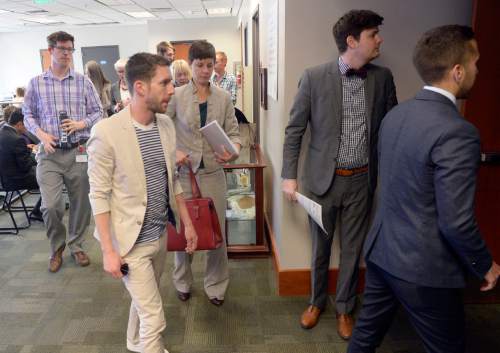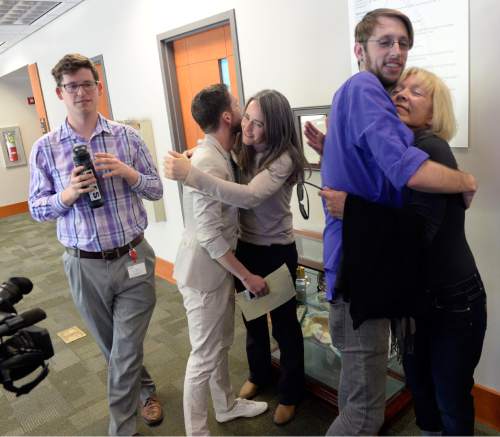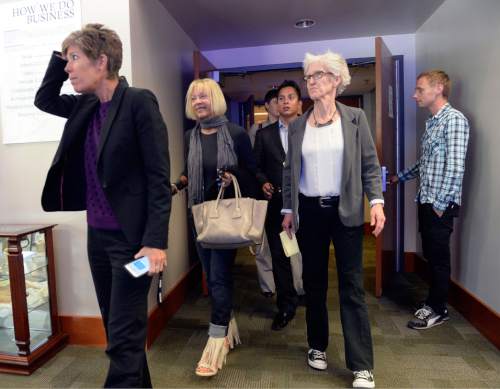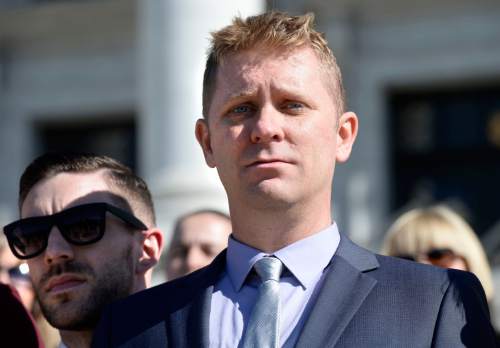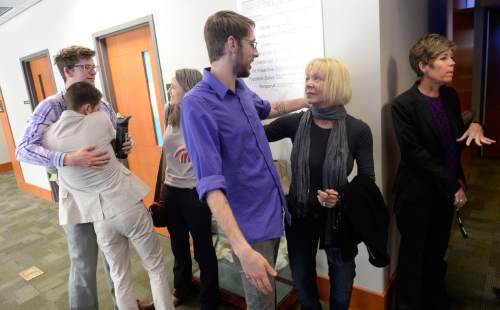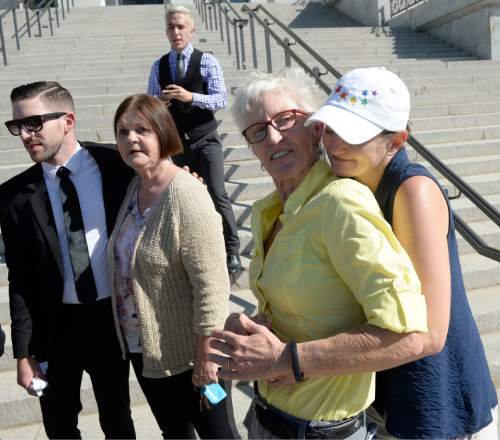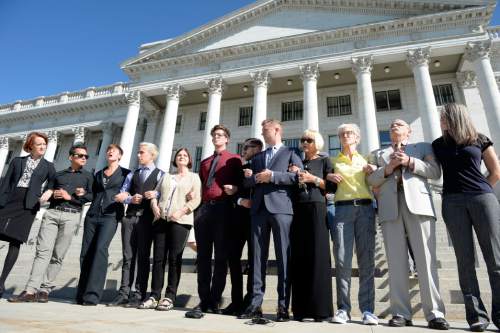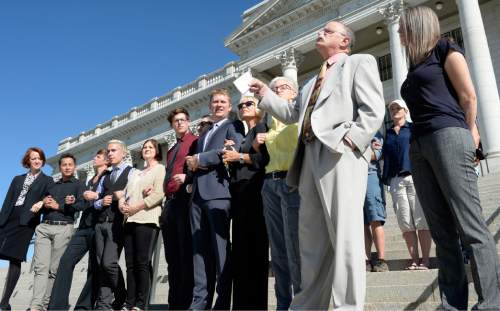This is an archived article that was published on sltrib.com in 2015, and information in the article may be outdated. It is provided only for personal research purposes and may not be reprinted.
Ten Utah gay- and transgender-rights activists, arrested after blocking access to a 2014 legislative hearing, pleaded guilty to reduced criminal charges Wednesday — even as they continued to insist they did nothing wrong.
"We didn't commit a crime," defendant Donna Weinholtz said. "[Civil disobedience] is an American tradition. … We went up there as American citizens, as citizens of Utah, whose voice was not being heard."
Dubbed the "Capitol 13" — 10 of whom appeared in court Wednesday — the activists arrested at the Utah Capitol in February 2014 after a daylong sit-in which sought to force state lawmakers to consider legislation to bar discrimination against lesbian, gay, bisexual or transgender people in matters of employment and housing.
A version of the legislation — forged through a historic compromise between lawmakers, LDS Church authorities and leaders of the LGBT community — cleared the 2105 Legislature and Gov. Gary Herbert signed it in March.
Salt Lake City prosecutors originally charged each of the 13 with one count of disrupting a meeting, a class B misdemeanor, which is punishable by up to six months in jail.
Under the terms of plea agreements, the charges were dropped to an infraction, for which the punishment was a $100 fine and three months of probation.
Ten of the 13 defendants entered no contest pleas Wednesday before Salt Lake City's Justice Court Judge Catherine Roberts. Hearings for the remaining three, who are expected to enter similar pleas, are set for April 24 and May 4.
By pleading no contest, the activists have not admitted guilt, but concede that prosecutors likely have enough evidence to secure convictions. The pleas were entered "in abeyance," meaning all can have their court records wiped clean after three months, as long as they are not arrested or charged with new crimes.
In addition to Weinholtz, the Capitol 13 include Matthew Anderson Conway, Kevin Scott Garner, Steven Randall Germann, Jacob Joseph Hanson, Angela Jo Isaacs, Matthew James Landis, Orlando Luna, Gail Ellen Murdock, Justin James Trent, Michelle Turpin, Gail Mildred Turpin, and Troy Williams, who is now the executive director of Equality Utah.
The cases for Williams and the Turpins, who are related, are those set for later hearings.
"We feel really good about the outcome," Isaacs said after the hearing. "In the end, we were successful in what we set out to do when we first stood together at the Capitol.
But for all in the group, taking a plea feels "bittersweet," Isaacs added. The protesters don't believe they are guilty of anything more than exercising their right to be heard, and all were frustrated by the actions of state lawmakers.
At the time of the Capitol 13 demonstration, lawmakers had blocked proposals for a statewide nondiscrimination law in each of the five previous years. In 2014, legislators further stalled any debate of the issue, citing the state's ongoing court battle over a federal judge's ruling that legalized gay marriage in Utah.
The nondiscrimination conversation shifted in 2015, however, and the law finally passed with wide support after negotiations with Mormon leaders, who had called for laws that protected the rights of LGBT Utahns and people of faith.
The new law amends Utah's existing anti-bias laws to make it illegal for landlords or employers to discriminate on the basis of sexual orientation or gender identity, while clarifying exemptions for faith institutions and providing protections for religious expression.
With its enactment, Utah becomes the 19th state to provide protections for the LGBT community in housing and employment based on both sexual orientation and gender identity.
Weinholtz objects to the LDS Church's involvement and said no church should be at the negotiating table in a matter that involves civil rights or housing and employment-related discrimination. Still, the eventual passage of "brilliant" legislation that protects Utah's gay and transgender residents is a reason to celebrate, she said.
"I consider this a victory," Weinholtz said. "I thank the legislators for their votes, but I don't thank them for the years that they ignored this community."


